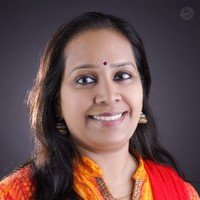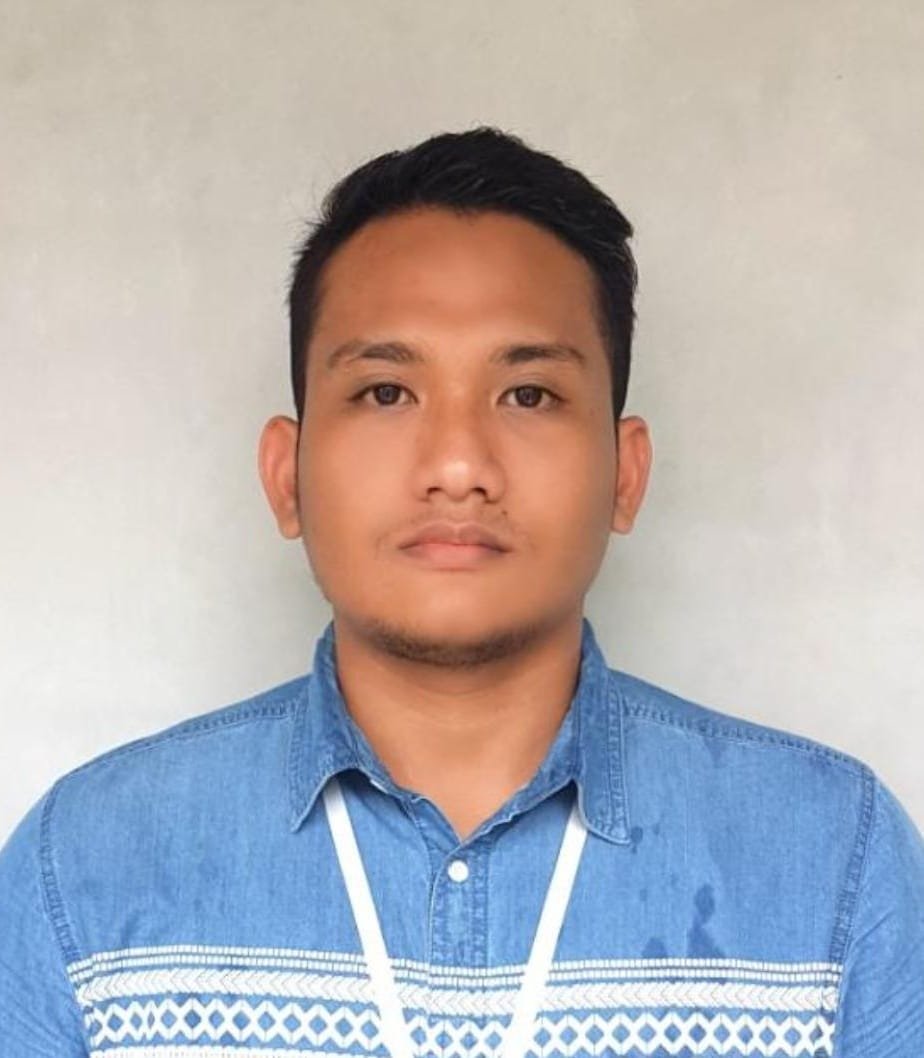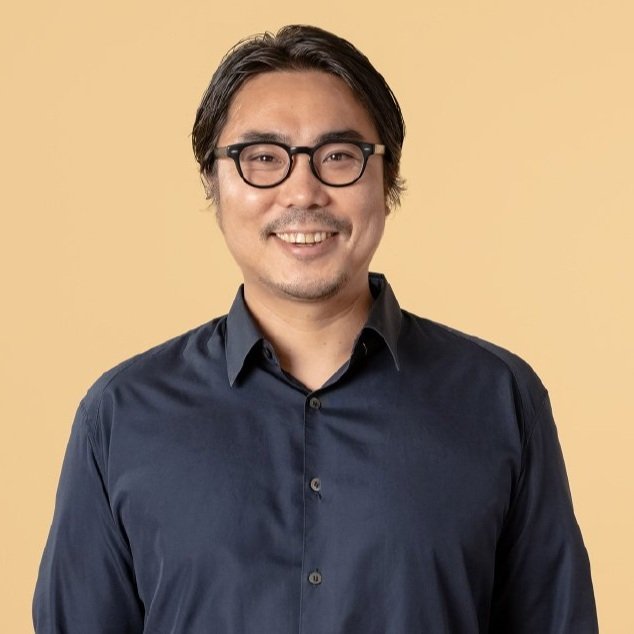
Community Council
Community council members take a leadership role by working with the CoP coordinators to help ensure that the community of practice is focused, intentional, and strategic about achieving the goals of community members.

-

Pablo Álvarez
INDEPENDENT CONSULTANT, MEXICO
Pablo Álvarez is an independent consultant with expertise in sustainable fisheries projects, with an emphasis on the implementation of Fishery Improvement Projects. He worked as Thematic Coordinator in the Department of Conservation at Pronatura Noroeste NGO in Mexico, from 2017 to 2023. He is an Associate Technical Consultant in the registry of technical consultants of the Marine Stewardship Council (MSC) to support fisheries around the world. He is an Oceanographer with a Master of Science, and a Ph.D. in Environment and Development. He has worked in northwestern Mexico since 2002, with fishing communities and organizations. He was a professor at the Faculty of Marine Sciences of the Autonomous University of Baja California from 2007 to 2021. His main interest is the implementation of self-management projects for the sustainable management of fisheries, with the purpose of improving the livelihoods of local community members. Pablo is a colleague and friend.
"What I value about the CoP is that it is an inclusive space in which each stakeholder has the freedom to share, learn and question the work of the FIPs."
-

Sandra Andraka
ECOPACIFIC+, COSTA RICA
Sandra Andraka has more than 20 years of experience in marine and terrestrial conservation projects in Latin America. She has built a relationship of trust with numerous actors, including fishers, retailers, decision makers, public and private entities from the conservation and producer sectors. She has provided advice on a variety of topics: artisanal and small-scale fisheries management, marine spatial planning, assessment of capacity needs in the implementation of the FAO Agreement on Port State Measures, development of observer programs and measures bycatch mitigation. Currently, she works as a consultant for the UNDP Green Commodities Program in the development of methodologies for multi-stakeholder platforms for systemic change in value chains of production systems, and is an advisor on sustainable fishing for several initiatives and coordinates the Costa Rica large pelagics FIP from her own consulting firm, EcoPacific Plus Consulting.
-

Dr. Vineetha Aravind
INDEPENDENT CONSULTANT, INDIA
Dr. Aravind is working as a consultant for the ITM Project under the Marine Conservation Programme of WWF India. She is the FIP Manager of two FIPs for eight trawl fisheries in Kerala, India. She holds a doctorate in Mariculture. Vineetha is a certified MSC fishery team lead and is also trained in traceability, RBF, and MSC/ASC Chain of Custody. She has participated in different audits as a P1, P2, and P3 auditor. Recent works include the longline, traps, trawls, and trammel net.
“I found working with CoP a great experience as there is an arena to express my views and issues regarding FIPs I handle and benefit from shared ideas.”
-

Faridz Fachri
PESISIR LESTARI, INDONESIA
Experienced in marine and fisheries projects for small-scale fisheries issues through the implementation of FIPs (Fishery Improvement Projects). More than seven years of work with expertise in ecosystem principles, fisheries governance, supply chain-market system, traceability, also stakeholders co-management development. Focused on varied tropical fisheries commodities; crustacean, bivalve, anguillid eel, octopus, tropical multi-species, and multi-gear fisheries.
“CoP is great, it can engage us (the FIP practitioner) within the region to share and to learn many things about how to achieve the improvement on the water toward sustainable seafood”
-

Christopher Giordano
FIP CONSULTANT, SPAIN
Christopher is a political ecologist and micro-economic development specialist whose work focuses on improving the quality and safety of marine-derived food products within supply chains, especially to ensure food and nutrition security and post-harvest loss reduction within local seafood systems to the benefit of small-scale fishers. After finishing his Master’s in Marine Affairs, Christopher lived in Peru for five years, where he analyzed Peruvian seafood system governance, supported participatory design and inclusion of quality improvement and livelihood diversification interventions within the Mahi mahi and Jumbo flying squid Fishery Improvement Projects, and conducted ethnographic work supporting the declaration of artisanal fishing practices as cultural heritage of Peru. After his work there, Christopher supported strategy development for community engagement in the Belize Spiny Lobster FIP+FDM, the assessment, redesign, and management of the Artisanal Day Octopus fishery FIP in the SW of Madagascar, and the design and launch of the Small-Scale Day Octopus FIP in Sulawesi, Indonesia with Blue Ventures.
“Many FIP leads can feel alone or that they're working in isolation - usually they are one a few within their organization that understands what a FIP is! The CoP provides FIP practitioners the support they need to work through some of the challenges improving the sustainability of fisheries.”
-

Wendy Goyert
WWF, UNITED STATES
Wendy leads WWF-US’s seascapes work in the Eastern Pacific. Since 2011, Wendy has worked closely with WWF staff and partners in Latin America and the Caribbean to develop, implement, and monitor fishery improvement projects (FIPs) to ensure fisheries are transitioning towards sustainability. She has also led WWF training efforts to build global capacity for FIP development and implementation. She is now expanding upon her fisheries experience in Latin America to develop an integrated approach to achieve positive change for biodiversity, people, and climate in the Eastern Pacific seascape by 2030. Before joining WWF, Wendy worked as an Ocean Policy Fellow with the Marine Conservation Institute in Washington, DC and previously worked at The Nature Conservancy for 7 years where she supported program operations and conducted finance training for the Latin America and Caribbean programs. Wendy received her master’s degree in environmental management from Duke University in May 2009, where she explored the challenges and benefits of Marine Stewardship Council (MSC) certification for the Maine lobster fishery. She received a Bachelor of Arts in Environmental Studies from Middlebury College and is fluent in Spanish and proficient in Portuguese. Wendy fell in love with the ocean growing up fishing, sailing, and swimming in the waters off Massachusetts, and still spends much of her summers there with her kids. She developed a love for Latin America at a young age while living with her family in Argentina, Brazil, and Mexico for eight years. She feels very fortunate that she found a career where she can pursue her love of marine conservation in one of her favorite parts of the world.
“The FIP Community of Practice is an excellent resource to connect with and learn from FIP implementers around the world. I highly value the relationships I have developed through the practice and look forward to continuing sharing experiences and best practices in FIPs, and helping build a strong network of dedicated FIP practitioners.”
-

Shunji Murakami
UMITO PARTNERS, JAPAN
Shunji works hand-in-hand with fisheries and fishing communities in partnership with chefs, business, financial sectors to help them become more sustainable, and help the government design equitable policies in inclusive ways connecting with voice and realities on the ground. Shunji has been leading in the FIPs and certification landscape in Japan as well as creating incentives for bottom-up FIPs to drive fisheries to uptake sustainability initiatives.
“I believe that shared knowledge across diverse FIP communities is critical for collective impacts and equitable process for the ocean sustainability and fishing communities. I am excited to be part of the community and very much looking forward to contributing to the community and FIP landscapes in the future.”
-

Mod Talawat
UNITED NATIONS OFFICE FOR PROJECT SERVICES (UNOPS), THAILAND
Mod coordinates the project on ‘Implementing the Strategic Action Programme for the South China Sea and Gulf of Thailand’ among project partners and Thai authorities, aiming at increasing protected areas for marine and coastal habitats. She led the Thailand Blue Swimming Crab FIP from 2016-2022 and founded Sea Purpose Co., Ltd. in 2019. Prior to founding her company, she worked at WWF-Thailand where she started engaging with industry, government, universities, and fishers on seafood sustainability and launched FIPs. She also worked for the Marine Stewardship Council focusing on fisheries in developing countries. She has over sixteen years of project implementation experience in Southeast Asia covering fisheries, aquaculture, seafood traceability, coastal zone management, and marine debris. She worked with regional and international organizations including Southeast Asian Fisheries Development Center (SEAFDEC) on fisheries, World Bank on marine plastics, and Global Dialogue on Seafood Traceability (GDST) on traceability of seafood products. Mod has a BSc. in Fisheries from Kasetsart University in Thailand and a master’s degree in Marine Science, Policy and Law from University of Southampton.
“The CoP gave me new perspectives when I struggled with project implementation. Experience shared by other implementers showed me how they solved similar issues. When I wondered if a FIP could contribute to a change at policy level, a CoP member presented and proved how it was accomplished in their country!”
-

Lorena Rocha Tejada
COMUNIDAD Y BIODIVERSIDAD (COBI), MEXICO
Marine biologist with wide experience working with fishing communities in Mexico, in the development and implementation of conservation tools and projects for sustainable fishing. Leader of the Fishery Improvement Project (FIP) for octopus in Yucatan. Supervisor of the correct functioning and progress of the FIPs that COBI leads in Mexico: penshell (Sonora), ocean whitefish (BC), finfish (Sonora and Baja California), and red snapper (Campeche). Leader of monitoring and compliance with co-financing strategies with the actors involved in the FIPs, and in charge of overseeing the leadership transfer process to the fishing communities. A user of the MSC standard as an Associate Technical Consultant, with experience in developing and implementing action plans with a focus on governance, and equitable financial contributions from stakeholders. Member of the collective The Global Hub - Conservation Alliance For Seafood Solutions.
“The community of practice is important and valuable because of the wide knowledge and experience of its members. They adapt and adopt new ways of solving the problems together that the fishing sector faces, and that strengthens the connections to hold the community itself.”
-

Javier Van Cauwelaert
SMARTFISH INC., MEXICO
Javier is partner and CEO of Comercializadora SmartFish, the only retail company in Mexico whose entire seafood catalogue is sustainable caught or in a FIP and comes from artisanal fishers. Javier joined SmartFish in 2018, and since then has dedicated his efforts to design and implement the company's expansion plan, which allows them to increase their impact, working with more artisanal co-ops. During this time he has worked with more than 9 co-ops, most of which participated on different FIPs and has acquired knowledge about the needs of the co-ops and how the market can promote changes towards more sustainable practices. He became interested in sustainable fishing while working at Contramar, a high-end restaurant group in Mexico City, where he was the CFO and purchase and sustainable procurement for the group. Born in Argentina and Mexican by choice, he holds a Master's degree in Mechanical and Aerospace Engineering from Boston University and a Bachelor's degree in Physics from the Universidad Nacional Autónoma de México.
CoP Staff
The FIP CoP staff foster relationships and create connections across members through regional workshops, webinars, social responsibility cohort coaching, and an online communications platform.

-

Jesse Marsh, Global Coordinator, United States
Jesse is the Principal and Manager of Scaling Blue, an independent consultancy founded in 2014. Scaling Blue helps non-profit organizations, foundations, the private sector, and other stakeholders scale their collective impact to achieve more sustainable fisheries and communities. Jesse has 14 years of experience working on FIPs, and coordinates the FIP community of practice, connecting FIP stakeholders globally to learn from each other and take action to increase FIP impact. Prior to founding Scaling Blue, Jesse led WWF’s engagement with corporate partners on sustainable seafood and supported the development of FIPs in Southeast Asia, Latin America, the Caribbean, and Africa. Before joining WWF she worked at the Monterey Bay Aquarium. Jesse received a B.A. in Environmental Science from Boston University and a master’s degree in Environmental Management from Duke University. The inspiration for her work began on the waters of Magdalena Bay.
-

Heri, Asia Pacific Regional Coordinator, Indonesia
Heri is a Marine Biologist who graduated from the University of Indonesia. He is currently working with several companies on their FIPs as an independent fisheries consultant, helping with action plan implementation. Heri started working on FIPs when he joined the Indonesian Pole and Line and Handline Association (AP2HI) in 2015. His last position was as the Fisheries Information and Traceability Coordinator, focusing on data reporting mechanisms to support Marine Stewardship Council outcomes and improved traceability and transparency in the company members’ supply chains.
-

Antonio Gómez, Latin America Regional Coordinator, Mexico
Antonio has been the Latin America Regional Coordinator since 2018. In addition, he is getting his Ph.D. in Environment and Development at the Autonomous University of Baja California, focused on resilience changes assessment in fisheries involved in fishery improvement projects (FIPs). Previously, he worked for Comunidad y Biodiversidad A.C., on FIP implementation in different fisheries in northwestern Mexico. He holds a master's degree in marine ecology, from the Center for Research and Higher Education in Ensenada, Baja California, and a master's degree in oceanography and marine environment management at the University of Barcelona. In his free time he loves to do outdoor activities, both at sea and on land, and when he can, he loves to travel and see new places.
-
Margaret Gilroy, Program Associate, United States
Margaret has worked very closely with over 200+ FIPs that are listed on the FisheryProgress platform. She oversaw and implemented the review and verification of the information that FIPs submitted to the website and served as a primary resource for FIPs that were using the platform to report progress. She has previously been involved in several marine conservation projects, including a queen conch population study in the Bahamas for the Cape Eleuthera Institute and a vulnerability assessment of bivalves to ocean acidification for the United States Environmental Protection Agency. Margaret was also a consultant for the Natural Resources Defense Council on an international marine mammal bycatch project and co-authored their Net Loss report. She holds a Bachelor of Arts in Environmental Studies from the College of the Holy Cross and a Master of Environmental Management from Duke University.


